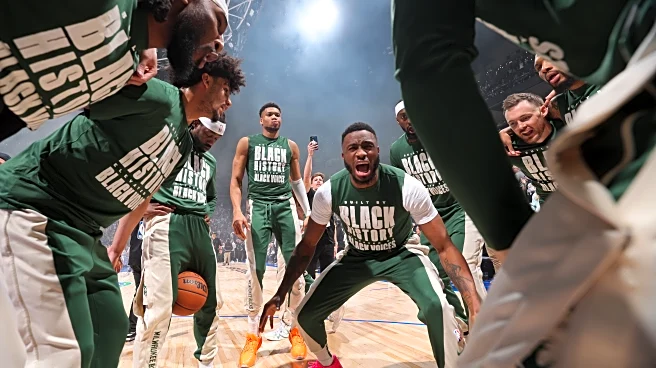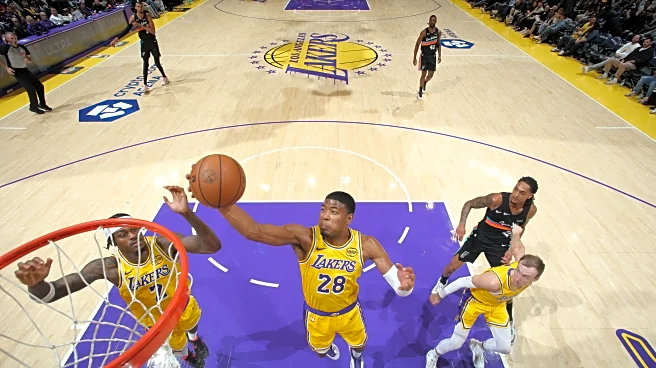As you all know, Thanasis Antetokounmpo is back with the Milwaukee Bucks after missing the entire 2024–25 season due to a torn Achilles tendon. The move has garnered a lot of attention—mostly of the negative
variety (see nepotism, talent, age, injury, etc.)—and, to be honest, this is all valid. After all, Thanasis is 33 years old, coming off one of the worst injuries in sports, and has never averaged more than 10 minutes per game or played more than 57 games in a season. He also doesn’t have the resume or apparent basketball IQ to offer the “veteran presence” that kept guys like Udonis Haslem and Nick Collison on rosters for longer than their playing days warranted.
Yes, it’s totally understandable to view Thanasis’ re-signing as a grenade. And as Hazel attests in John Green’s The Fault in Our Stars (sorry, it’s the English teacher in me coming out), a grenade doesn’t come without “casualties.” In this case, there certainly will be collateral damage: someone, arguably with more playability, has to be cut. Andre Jackson Jr. seems a likely victim due to his contract not being fully guaranteed, as does Amir Coffey due to his training camp deal. But Tyler Smith and recently re-signed Chris Livingston could also prematurely get caught by the shrapnel too. In any of these cases, the optics aren’t ideal: the Bucks lose wing depth—an area of need—and/or youth (not to mention what such a move would say about the team’s management of draft picks and roster spots).
Yet, as The Fault in Our Stars’ Isaac shows, optics aren’t everything. Hear me out (pun intended).
Thanasis Antetokounmpo, for all his flaws, is the “Literal Heart” (okay, I’ll stop) and soul of the Bucks. Allusions aside, I’m an avid believer—across all sports—in having veteran players (as distinct from coaches) for leadership purposes. There’s just something to having a teammate lead through all the battles—the practices, the recovery sessions, the ups and downs—that a coach can’t replicate (birds of a feather, and all that). Theo Pinson had this reputation with the Dallas Mavericks, so this role isn’t limited to the Haslems and Collisons of the world.
For the Bucks, this is undeniably Thanasis—for whatever reason, he simply has it. He’s a non-stop worker and communicator, setting the tone for the Bucks in every facet. In other words, he’s the culture setter and, as the saying goes, “culture eats strategy for breakfast.” The fact that he’s remained a Buck under the regimes of both Bud and Doc is a testament to this notion.
Critics of Thanasis will likely attest to the intangibility of these attributes, positing that trying hard and constant communication are easy to do and that anyone can do them. But it’s these very things that are perennially underrated; hard work isn’t called what it is for no reason. Through his actions and dialogue, Thanasis is a legitimate motivator, something people outside of basketball make entire careers out of. So why is it so hard to believe there’s inherent value in this within the basketball world? And for those who do point to the collateral damage of Thanasis’ re-signing, I retort: is it worth hanging onto guys who’ve not made any impression and are just as unlikely to contribute on the court because of their draft status or—trigger word alert—“potential?”
Thanasis may be the 15th best player on the Milwaukee Bucks’ final roster, but that’s actually what makes him even more valuable—most 15th men won’t play anyway, let alone sniff at the cultural impact he has. Moreover, when the 15th best player is the hardest worker—knowing full well he likely won’t play—it flips the hierarchy on its head (thanks, Mitchell), sending the message to everyone in front of him: you have to bring it every day, and I’ll be right here to help you through each one. That’s power.
So, I beg of you: focus not on what Thanasis can’t do and instead focus on what he does: make the biggest and baddest dude in the league—and by nature the Bucks—even better. You want playoff impact? You’ve got your answer right there.
Onto number 16, who we’ll discuss tomorrow:









